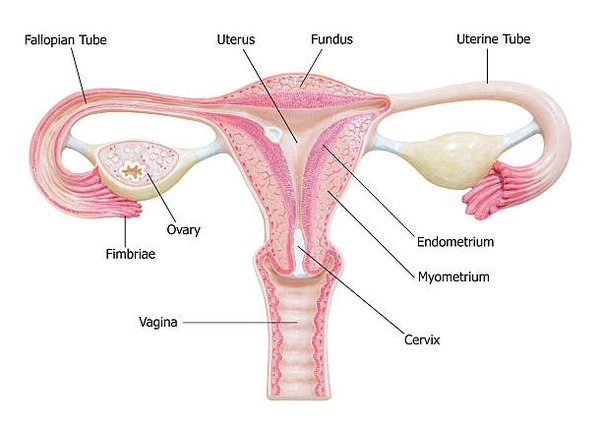What food kills sperm in the female body?
Foods and their effects on fertility have been a topic of discussion for ages. While there is limited scientific evidence specifically addressing foods that kill sperm in the female body, some studies suggest that certain foods may affect sperm viability. Incorporating these foods into your diet might help reduce the chances of conception if used as part of a well-rounded birth control strategy or when trying to conceive is not your desired outcome.

1. Papaya:
Papaya is considered one of the foods that may reduce sperm viability in the female reproductive system. This tropical fruit contains an enzyme called papain, which is believed to interfere with sperm function. While more research is needed to fully understand its effects on sperm, consuming ripe papaya has been a traditional method of contraception in some cultures.
2. Soy:
Soy products, including tofu and soy milk, contain a natural isoflavone called genistein. Studies have shown that genistein can potentially decrease sperm motility, making it harder for them to swim towards the egg and fertilize it. However, further research is required to determine the extent of its impact.
3. Green Tea:
Green tea is renowned for its numerous health benefits, but it may also play a role in reducing sperm fertility. Certain compounds present in green tea have been linked to a decrease in sperm count and motility. However, moderation is key, as excessive consumption of green tea may have adverse effects on overall health.
4. Caffeine:
High consumption of caffeine, found in various beverages like coffee, tea, and energy drinks, has been associated with negative effects on sperm health. While the role of caffeine in sperm viability is still under investigation, it is advisable to limit overall caffeine intake if you're concerned about fertility.
Conclusion:
While the foods mentioned above are believed to have potential effects on sperm viability, it's worth noting that they may not provide foolproof contraceptive measures. Always remember to consult with medical professionals and seek reliable birth control options or fertility advice. Incorporating these foods into your diet might be used as a complementary method but should not replace traditional methods of contraception or medical interventions when needed. Monitor your body's responses and consult experts for personalized guidance.
Related FAQs about what food kills sperm in the female body
What is the impact of papaya on sperm viability?
Papaya contains an enzyme called papain, which is believed to interfere with sperm function. While more research is needed, consuming ripe papaya has been considered a traditional method of contraception in some cultures.
Does soy affect sperm motility?
Soy products contain genistein, a natural isoflavone that may decrease sperm motility, making it more difficult for them to swim towards the egg and fertilize it. However, further research is required for a definitive conclusion.
Can green tea lower sperm count?
Certain compounds in green tea have been linked to a decrease in sperm count and motility. However, excessive consumption should be avoided, as it may have adverse effects on overall health.
Is high caffeine intake harmful to sperm health?
While the relationship between caffeine and sperm viability is still being studied, high caffeine consumption has been associated with negative effects on sperm health. Limiting overall caffeine intake is advisable.
Do these foods provide reliable methods of contraception?
No, the foods mentioned above should not be relied upon as foolproof contraceptive measures. They might be used as complementary methods, but reliable birth control options or medical interventions should be consulted for effective contraception.
Glossary about what food kills sperm in the female body
1. Papaya: Papaya is a tropical fruit known for its sweet taste and vibrant orange flesh. It is believed to contain an enzyme called papain, which may interfere with sperm function.
2. Papain: Papain is a proteolytic enzyme found in papaya. It has been traditionally used as a meat tenderizer and may have potential effects on sperm viability.
3. Soy: Soy is a plant-based protein derived from soybeans. It is commonly used as a meat substitute in various products, such as tofu and soy milk. Soy contains an isoflavone called genistein, which has been studied for its impact on sperm motility.
4. Genistein: Genistein is a natural isoflavone found in soy products. Studies have suggested that genistein may decrease sperm motility, making it more difficult for sperm to reach and fertilize the egg.
5. Green Tea: Green tea is a type of tea made from the leaves of the Camellia sinensis plant. It is produced differently from black tea, resulting in a milder flavor and higher concentration of beneficial compounds. Certain compounds in green tea have been associated with a potential decrease in sperm count and motility.
6. Caffeine: Caffeine is a naturally occurring stimulant found in various beverages like coffee, tea, and energy drinks. High consumption of caffeine has been linked to potential negative effects on sperm health, although further research is needed to fully understand its impact.
7. Contraception: Contraception refers to methods or devices used to prevent pregnancy. It can include hormonal birth control, barrier methods, intrauterine devices (IUDs), sterilization, and natural family planning. Reliable contraception should be discussed with healthcare professionals.
8. Fertility: Fertility refers to the natural ability to conceive and reproduce. It involves the successful fertilization of an egg by sperm. There are various factors that can impact fertility, including health conditions, age, and lifestyle choices.
9. Motility: In the context of sperm, motility refers to the ability of sperm cells to move and swim towards the egg for fertilization. Healthy sperm with good motility have a higher chance of reaching and penetrating the egg.
10. Isoflavone: Isoflavones are a type of naturally occurring phytoestrogens found in some plants. They have a structure similar to the hormone estrogen and can potentially have hormonal effects when consumed. Soy products, like tofu, are rich in isoflavones.
